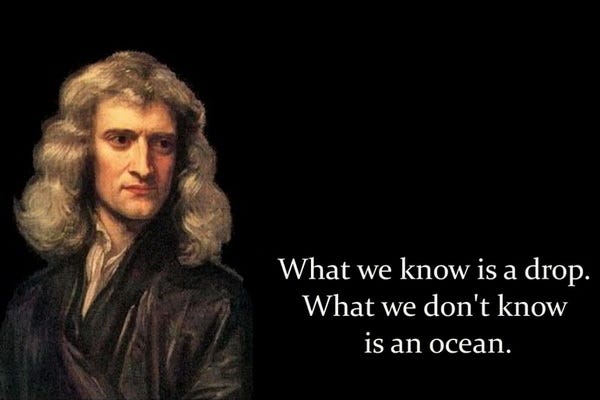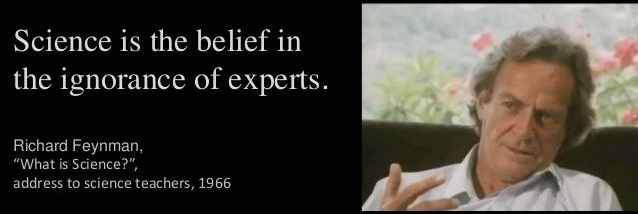The other day I barely survived a few seconds of a video made by two mental midgets wearing t-shirts emblazoned with “Science, Like Magic But Real”, and while I was attempting home Electro-Convulsive Therapy via bare extension cord wires in hopes of scrambling my short-term memory before it could become long-term memory, I was reminded of Sir Isaac Newton.
Newton is regarded by many as the father of modern science. Among other things, he gave us Optics, the eponymous Newtonian Laws of Motion, and Calculus. He was also a deeply religious man who obsessively tried to calculate the age of the earth and time of its likely end using biblical clues. He was a heretic who rejected the divinity of The Trinity and he secretly engaged in illegal alchemic experiments.
In 1942 economist John Maynard Keynes, a collector of Newton’s writings, pointed out that indeed Newton was not the first scientist, he was instead the last magician:
“Newton was not the first of the age of reason. He was the last of the magicians, the last of the Babylonians and Sumerians, the last great mind which looked out on the visible and intellectual world with the same eyes as those who began to build our intellectual inheritance rather less than 10,000 years ago. Isaac Newton, a posthumous child born with no father on Christmas Day, 1642, was the last wonder-child to whom the Magic could do sincere and appropriate homage.”
This dichotomy has always struck me as fascinating. If indeed Newton was the last of The Magicians, it was his own genius that put an end to their reign.
And yet as I watch The High Priest of The Science don his vestment of White Lab Coat and raiment of Holy Stethoscope whilst lesser priests prostrate themselves and lament that not all have yet been forced to bow before Pharma Most Holy, I wonder if things have really changed all that much from the days when Magicians promised to turn lead into gold.
In 1966 Richard Feynman, one of the preeminent physicists of the 20th century, gave a speech to National Science Teachers Association in which he said:
“As a matter of fact, I can also define science another way: Science is the belief in the ignorance of experts.
When someone says, “Science teaches such and such,” he is using the word incorrectly. Science doesn’t teach anything; experience teaches it. If they say to you, “Science has shown such and such,” you might ask, “How does science show it? How did the scientists find out? How? What? Where?”
It should not be “science has shown” but “this experiment, this effect, has shown.” And you have as much right as anyone else, upon hearing about the experiments–but be patient and listen to all the evidence–to judge whether a sensible conclusion has been arrived at.”
How far we have fallen.
Arthur C. Clarke famously said “Any sufficiently advanced technology is indistinguishable from magic”. By that standard most people, including the genetic rejects making that video, are surrounded by magic daily.
I’ll take magic over ignorant quasi-religious hypocritical hectoring any day of the week.
Besides…






